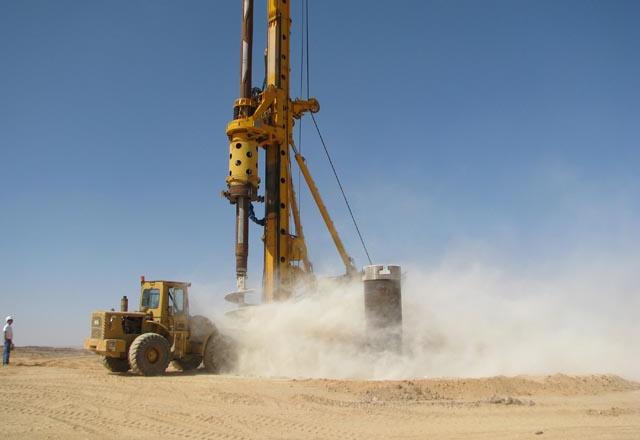You are here
Oil industry seeks opportunity in adversity
By AFP - Feb 17,2015 - Last updated at Feb 17,2015
LONDON — The oil sector is restructuring after the collapse of oil prices and opportunities may emerge for larger players wishing to snap up distressed companies and expand into crisis-hit producer countries, according to key industry players.
An oversupply of oil in the market, caused by the boom in crude extracted from US shale rock, has contributed heavily to crude prices crashing 60 per cent in value in the six months to January.
In response, the oil sector has begun to reorganise, as it has done every ten years on average. Big oil companies have begun to slash capital spending for the coming year. French multinational Total recently revealed a 30 per cent cut in its exploration budget.
But the current environment still provides a chance for them to possibly buy smaller struggling rivals at bargain prices, suggested participants at the recent International Petroleum Week in London.
'Vultures gathering'
In the United States, small producers have been hit particularly hard.
"There is an enormous [cash] liquidity squeeze in the US as we speak and it will come to a crescendo in the middle of this year," indicated Anthony Hayward, chief executive of Anglo-Turkish producer Genel Energy.
This will mean "a lot of distress" among small operators in US shale, but will create growth opportunities for those with capital and capacity, said Hayward. "The vultures are gathering."
Opportunities are also emerging globally, including in Organisation of Petroleum Exporting Countries (OPEC) producers Iraq and Venezuela, which will need funding to bridge the shortfall in their revenues from collapsing oil prices.
"For the major companies, this is now a great time of opportunities, those who are brave will seize the moment and will be able to acquire very good assets at knocked down prices," Hayward added.
Norwegian oil major Statoil also sees the drop in oil as a source of opportunity, particularly on the trading side.
"I think it is challenging for an upstream company like Statoil to cope with these changes," said Rune Bjornson, senior vice president at the company.
"But at the same time, especially on the market and trading side which is becoming more and more important, it gives the market new opportunities," he added.
For Ian Taylor, head of oil trading giant Vitol, the oil sector may be overlooking the demand side of the story.
"We had an incredible year of growth last year, a two million barrel per day (bpd) of non-OPEC increase in production... and we are all forecasting we are going to get another million barrels per day of growth this year," Taylor said.
"However the real story that we are not talking about very much in the industry is the other side of the equation: demand," he added.
Taylor is unsure whether demand will rise to meet soaring production levels. He was not convinced by analysts' predictions of growth in demand by a million bpd or more this year, after forecasts for 2014 proved too high.
"We are all trying to work out when the US production is going to slow down," he said.
Related Articles
LONDON — Global demand for crude oil produced by the Organisation of the Petroleum Exporting Countries (OPEC) will remain under pressure in
A series of multibillion projects to generate oil from oil shale and build oil shale-fuelled electricity plants will start operation in the next few years, relieving the country’s rising energy bill that accounts for 20 per cent of the country’s gross domestic product, officials said Monday.
OSLO/MOSCOW — A gap in US sanctions allows Western companies to help Russia develop some of its most technically challenging oil reserves, a













